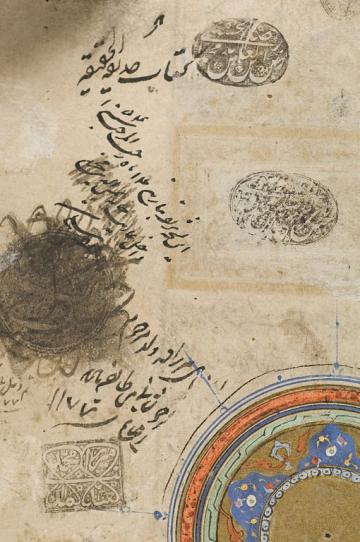Persian

Undergraduates studying for a BA honours degree in Asian and Middle Eastern Studies may choose to focus entirely on Persian (T613) and related subjects in literature, history, art and culture, or may combine Persian with an additional language (T6TX): choosing one of Arabic, Aramaic and Syriac, Classical or Modern Armenian, Early Iranian, Hebrew, Hindi/Urdu and Turkish. They may combine Persian with Latin and Greek in varying proportions in the Asian and Middle Eastern Studies and Classics (T9Q8) and the Classics and Middle Eastern Studies (Q8T9) courses. Persian may be studied less intensively for two years as an additional language within the BA courses in several other Asian and Middle Eastern languages: Arabic, Hebrew, Sanskrit and Turkish. Students wishing to study Persian with a European language, such as French or Russian, may do so by choosing the BA honours degree in European and Middle Eastern Languages. For a full list of the available European languages and the UCAS codes for each language combination, visit the EMEL admissions page.
Persian is one of the major languages of the contemporary Middle East and Central Asia, where – as Farsi, Dari and Tajiki – it serves as an official language in Iran, Afghanistan and Tajikistan.
In the medieval and early modern periods, Persian was a literary and administrative lingua franca for elites from China to the Balkans, and from Siberia to southern India, and it is still taught in Muslim communities in South Asia. Its pre-modern and modern literature contains masterpieces of epic and lyric poetry by authors such as Ferdowsi, Hafez and Forugh Farrokhzad, and it has made a deep and long intellectual and artistic contribution to Islamic culture.
Ever since the ninth century, when New Persian first emerged as a written language in an adapted Arabic script, there has been relatively little discrepancy between spoken and written forms. It is an Indo-European language, and therefore relatively easy to learn for students familiar with English and other European languages. In the space of an undergraduate course, it is possible to attain a good command of literary and colloquial Persian and to express oneself clearly and accurately in the language. There is no multiplicity of dialects or great chasm between spoken and written or classical and modern forms of the language to contend with. For these reasons it is an excellent choice of subject for an undergraduate to make, since a thorough grounding can quickly be established from which the more challenging aspects of a different literature and culture can be explored.
During the second year of the course, students study Persian abroad. It is not currently possible for them to study in Iran, so they spend the year in Armenia and Tajikistan. The year abroad is recognized as often being a most formative, rewarding and important part of an undergraduate student's career. For more information on the Year Abroad, please refer to the handbook.
Many of those who study Persian use their knowledge of the language in their subsequent careers. Some become journalists, or work in broadcasting, and there is always a demand from government, business, publishing, charities, NGOs and international organisations. A significant proportion take higher degrees and then move into one of the above careers, the academic world or museum or library work.
IMVBOX
The University of Oxford is pleased to announce IMVBox.com as an Official Education Partner. IMVBox collaborates with the university to promote Persian film, culture, and education. The purpose of the partnership is to give students the opportunity to learn by watching Persian-language films online. Alongside their Persian related courses, students can improve their command of the Persian language and increase their knowledge of Iranian culture, literature, and current events by watching movies and documentaries with subtitles on IMVBox.com
Boasting over 1,000 streaming films, IMVBox.com is the largest 'online cinematheque' and only legal platform for Iranian films. By showcasing a large selection of award-winning Iranian films, including features, documentaries, shorts, and plays, IMVBox aims to present the diversity, depth, and richness of Iranian cinema.
IMVBox's mission is to “paint a true picture” of the Middle East. The IMVBox team believes that Middle Eastern Cinema is a powerful medium not only in its ability to emotionally and artistically move a large number of audiences but also in its ability to raise awareness about the realities and cultures of the Middle East. And in that respect, IMVBox shares many common values with educational institutions whose work and activities also actively contribute to shed light on that “Real Middle East” and Middle Eastern culture.
Learn more at https://www.imvbox.com.




